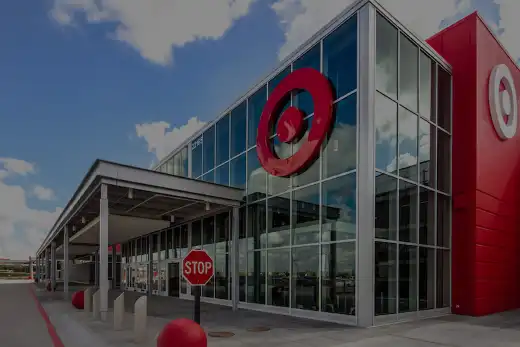MINNEAPOLIS / LONDON — August 21, 2025: Target has unveiled a 20% drop in quarterly profits while announcing its CEO succession plan, a pairing that raised eyebrows in the US and offers a cautionary tale for UK grocers.
The Minneapolis-based retailer reported second-quarter earnings per share of $2.05, down from $2.57 a year ago, with operating income off 19% to $1.3bn. Net sales slipped just 0.9% to $25.2bn — but behind the flat topline, comparable store sales fell 3.2%, margins narrowed to 29%, and markdowns and tariffs dragged profitability lower. Digital sales rose 4.3% and non-merchandise revenue, including its Roundel retail media arm, jumped 14.2%.
For UK supermarkets like Tesco, Sainsbury’s and Morrisons, the numbers are strikingly familiar: volume broadly intact, but profits under siege from discounter competition and customer price sensitivity.
Succession News Muddies the Message
Target’s board named COO Michael Fiddelke to succeed Brian Cornell as chief executive. But while the Q2 earnings release framed him as already appointed, a separate announcement confirmed the transition will not take effect until February 2026, with Cornell staying on until then before moving to executive chair.
That contradiction looked like more than sloppy wording. By bundling a leadership change with a disappointing quarter, Target risks appearing to bury bad news under governance headlines — a tactic investors and journalists recognise instantly.
The Emotional Undercurrent
Cornell, after 11 years at the helm and more than $30bn in revenue growth on his watch, positioned the move as continuity, stressing his “full confidence” in Fiddelke.
Fiddelke struck a sharper note, promising to “embrace change with pace and purpose” and “regain momentum.” His urgent language reflects a business that cannot coast.
For investors, the spin is clear but the numbers louder: a 20% profit slump can’t be hidden by a 0.9% dip in sales.
Why It Matters for the UK Market
- Margins, not sales, are the pressure point. Target’s gross margin slipped one percentage point, from 30% to 29%. On $25bn of sales, that meant hundreds of millions lost. UK supermarkets face the same problem: Tesco’s and Sainsbury’s margins are under constant strain from Aldi and Lidl promotions.
- Retail media is the bright spot. Target’s Roundel business grew double-digits, echoing the Clubcard Media and Nectar360 strategies in Britain. For UK grocers, the message is clear: retail media and loyalty data aren’t side projects — they’re core to future profit.
- Digital growth vs. store decline. Store comps fell 3.2%, digital rose 4.3%. That split mirrors the UK: online resilience against weak in-store volumes. Balancing channels is the retail war both sides of the Atlantic are fighting.
- Boardroom optics travel globally. Announcing a CEO succession alongside poor results risks credibility. UK boards should note: investors can tell when timing is tactical.
The Takeaway
For GSN’s readership in the UK, Target’s Q2 isn’t foreign news — it’s a mirror. Margin collapse behind flat sales. Digital and retail media carrying growth. A leadership handover timed to soften bad numbers.
Bottom line: this was never about sales falling 0.9%. It was about profits tumbling 20% and a board managing the narrative. For UK supermarkets, the lesson is blunt: margins and messaging matter more than ever.



